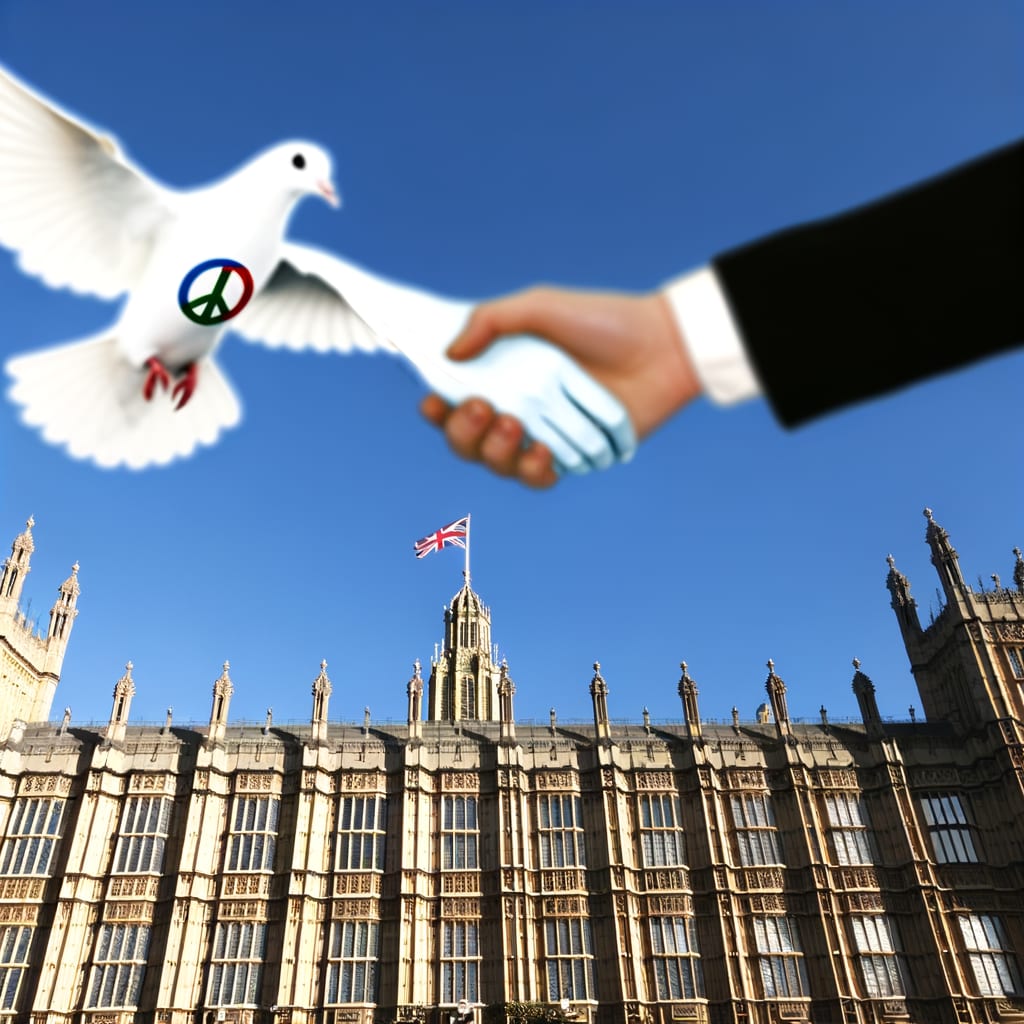UK Prime Minister Starmer Announces Plan to Recognise Palestinian State
In a significant shift in British foreign policy, Prime Minister Keir Starmer has announced a plan to recognise Palestine as a state at the United Nations General Assembly in September. The decision, which hinges on Israel taking substantive steps to end the ongoing conflict in Gaza, has been met with both praise and criticism internationally.
A Change in Policy
Starmer's decision comes after a week of holding off from recognising Palestine, despite pressure from over 250 MPs and cabinet members. The move has been seen as a response to the worsening humanitarian crisis in Gaza, as well as a desire to influence Israel to agree to a ceasefire and commit to a two-state solution.
The UK's decision follows France's announcement to recognise the Palestinian state, which was described by Palestinian authorities as historic
. However, these moves have sparked backlash from Israel and the US. Israeli Prime Minister Benjamin Netanyahu labelled Starmer's plan as appeasement towards jihadist terrorists,
while President Donald Trump denied giving the UK the green light for such recognition.
International Reactions
Israel's Foreign Ministry criticised the UK's decision, arguing it rewards Hamas and hampers efforts to achieve a ceasefire in Gaza. A jihadist state on Israel’s border today will threaten Britain tomorrow,
Netanyahu warned.
Conversely, several countries, including Australia, have been urged to join the UK in recognising Palestinian statehood. Australian Labor MP Ed Husic argued that recognising Palestine would deprive Hamas of power over Gaza and expedite the peace process.
The Pathway to Peace
Starmer's decision is part of what Downing Street has described as a pathway to peace
for Gaza and the wider region. Despite the UK's historical struggles to make progress towards peace in the Middle East, Starmer's plan has been viewed as an attempt to change the narrative.
However, the Prime Minister has met with resistance within his own party, with Labour MPs expressing frustration over his refusal to endorse immediate recognition of a Palestinian state. This internal conflict, coupled with the escalating war in Gaza, led Starmer to convene an emergency cabinet meeting to discuss a potential ceasefire and the growing calls to recognise Palestine.
Consequences and Current Status
The consequences of recognising a Palestinian state are complex. Experts suggest that this reflects deep international frustrations with Israel's conduct in Gaza and the occupied West Bank.
As Gaza faces a worsening starvation crisis, Israel faces accusations of using hunger as a weapon of war. Israel denies responsibility, instead blaming Hamas or the UN and aid organisations for aid distribution issues.
As of now, the UK stands firm on its decision, with the recognition of a Palestinian state set for September unless Israel meets the set conditions. The situation remains volatile, with the Palestinian death toll rising and the humanitarian crisis in Gaza worsening.

